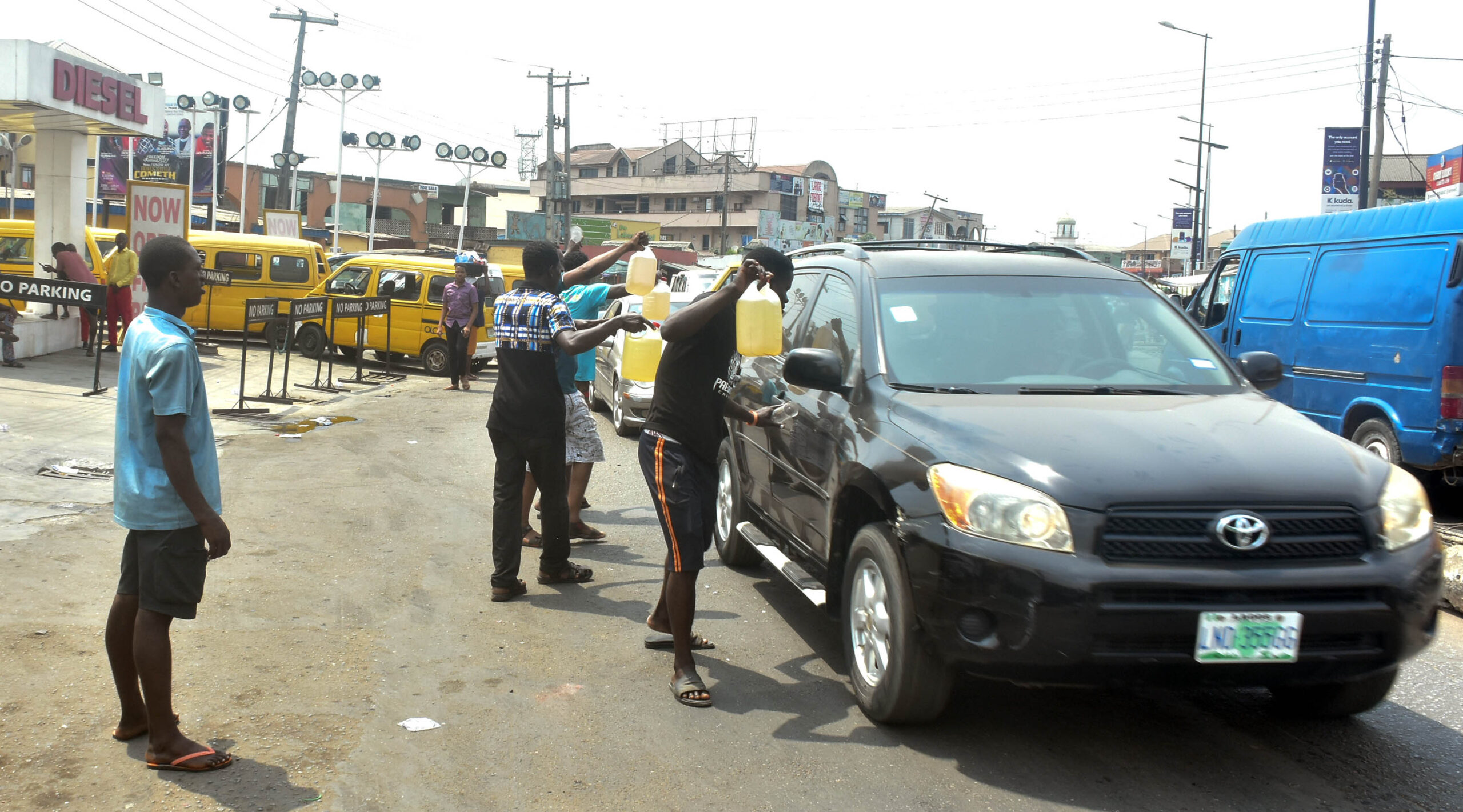Niger Delta
Fuel: Black Marketers Make Brisk Business …As Fuel Stations Remain Shut

Major fuel stations remained closed as black marketers make brisk businesses in Calabar metropolis.
The last few weeks in Calabar, the Cross River State Capital, have been particularly challenging due to the scarcity and hike in price of petroleum products in the city.
The development has affected the price of commodities and transportation fare: short trips between that used to cost N50 are now N100 and all the other trips that used to be N100 are now N150.
In an interview with the source, a taxi driver, Mr Usen Edet, at the popular stadium junction, said they had to increase the prices of their fares because getting fuel now is a herculean task.
Edet said although passengers are complaining, they would not go back on their decision except there is a change in the price and petrol becomes available.
“Today, most of the fuel stations are closed but the black marketers get fuel and sell at a very high price, what do you expect us to do?”
“People still need to move about and we also need to make something for ourselves and families,” he said.
The source went to some parts of the city and discovered the increased presence of petrol black marketers.
These black marketers who pose at different junctions in the city, especially in front of closed fuel stations, with kegs of petrol, compete by running towards anyone they suspect is a potential customer to sell their products.
One of the black marketers who seemed to be doing better than his compatriots told the source that he was rendering a service to the society as the product was scarce.
He refused to disclose how he gets the product but said he sells a litre for between N300 and N350 depending on the haggling power of the customer. He explained pidgin that as a former taxi driver, he doesn’t adulterate his fuel, neither does he sell adulterated fuel, knowing that it can destroy somebody’s engine.
In one of the few stations opened and dispensing the product, the attendant sold at N250 per litre, adding that they had to sell the product according to the price they bought.
He said they are one of the few stations that are open and are selling the product to customers and should be commended, even though, some of the buyers thought otherwise.
Niger Delta
NPC Unveils Digital Registration System In Delta

Niger Delta
Police Uncover Suspects’ Armoury … Recover Weapons In Delta

Niger Delta
Police Caution On Lawless Protests On Court Matters In A’Ibom

-
Maritime1 day ago
Customs Declares War Against Narcotics Baron At Idiroko Border
-
Maritime1 day ago
Nigeria To Pilot Regional Fishing Vessels Register In Gulf Of Guinea —Oyetola
-

 Sports1 day ago
Sports1 day agoGombe-Gara Rejects Chelle $130,000 monthly salary
-
Maritime1 day ago
NIMASA,NAF Boost Unmanned Aerial Surveillance For Maritime Security
-
Maritime1 day ago
NIWA Collaborates ICPC TO Strengthen Integrity, Revenue
-

 Sports1 day ago
Sports1 day agoTEAM RIVERS SET TO WIN 4×400 ” MORROW” …Wins Triple jump Silver
-

 Sports1 day ago
Sports1 day agoNSC eyes international hosting rights
-

 Sports1 day ago
Sports1 day agoNPFL Drops To 91st In Global League Rankings

